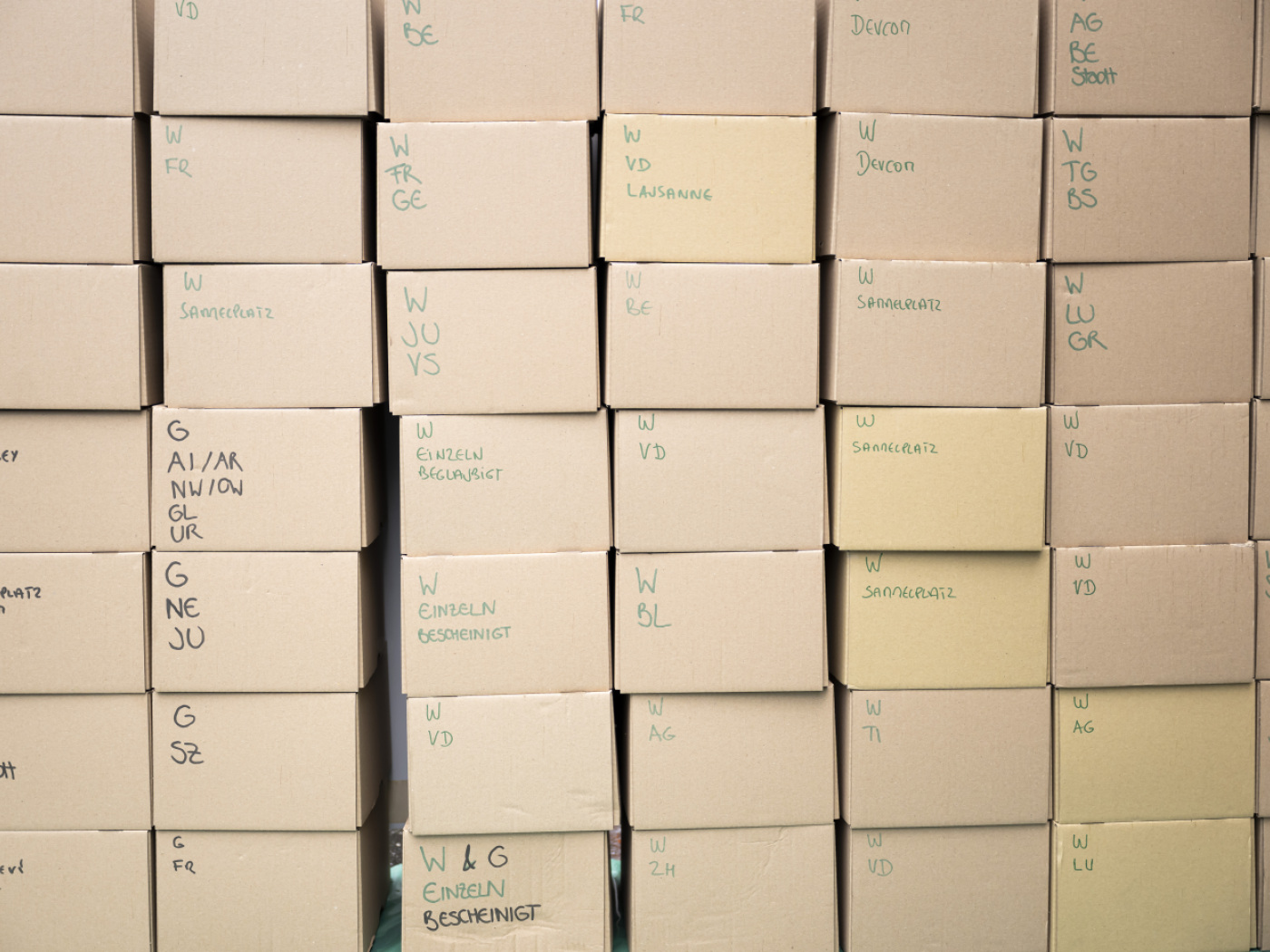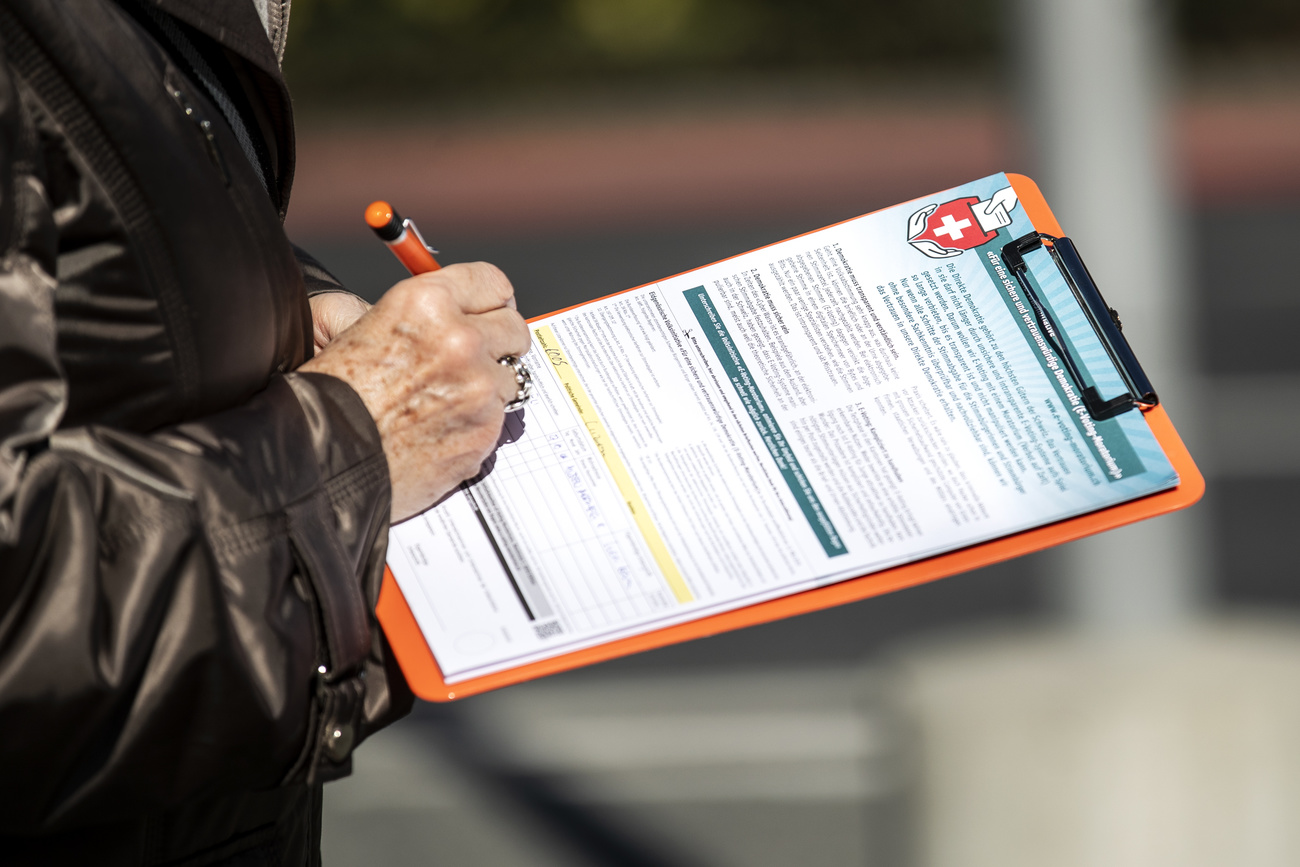
Switzerland to introduce code of conduct for collecting referendum signatures

Commercial collectors of signatures for popular initiatives and referendums in Switzerland could soon face a legally non-binding code of conduct. The proposal comes from the Federal Chancellery following the discovery of thousands of falsified signatures.
+Get the most important news from Switzerland in your inbox
The code of conduct is currently being drafted, the Federal Chancellery told news agency Keystone-SDA on Thursday. Signature-collecting companies will have to commit to self-regulation. The draft is subject to consultation until September 5. The Federal Chancellery will then provide information on the next steps.

More
‘Signatures scam’ reveals cracks in Swiss system
Since November 2024, Swiss cantons and municipalities have been reporting irregularities as part of a national reporting system. According to the Federal Chancellery, this is bearing fruit, as the number of dubious collections of signatures is “much lower” than it was in 2024.
The Chancellery then scrutinises all the signatures, checking each sheet and each signature line individually. Invalid signatures are also checked for falsification.
Translated from French with DeepL/gw
We select the most relevant news for an international audience and use automatic translation tools to translate them into English. A journalist then reviews the translation for clarity and accuracy before publication.
Providing you with automatically translated news gives us the time to write more in-depth articles. The news stories we select have been written and carefully fact-checked by an external editorial team from news agencies such as Bloomberg or Keystone.
If you have any questions about how we work, write to us at english@swissinfo.ch.

In compliance with the JTI standards
More: SWI swissinfo.ch certified by the Journalism Trust Initiative




























You can find an overview of ongoing debates with our journalists here . Please join us!
If you want to start a conversation about a topic raised in this article or want to report factual errors, email us at english@swissinfo.ch.